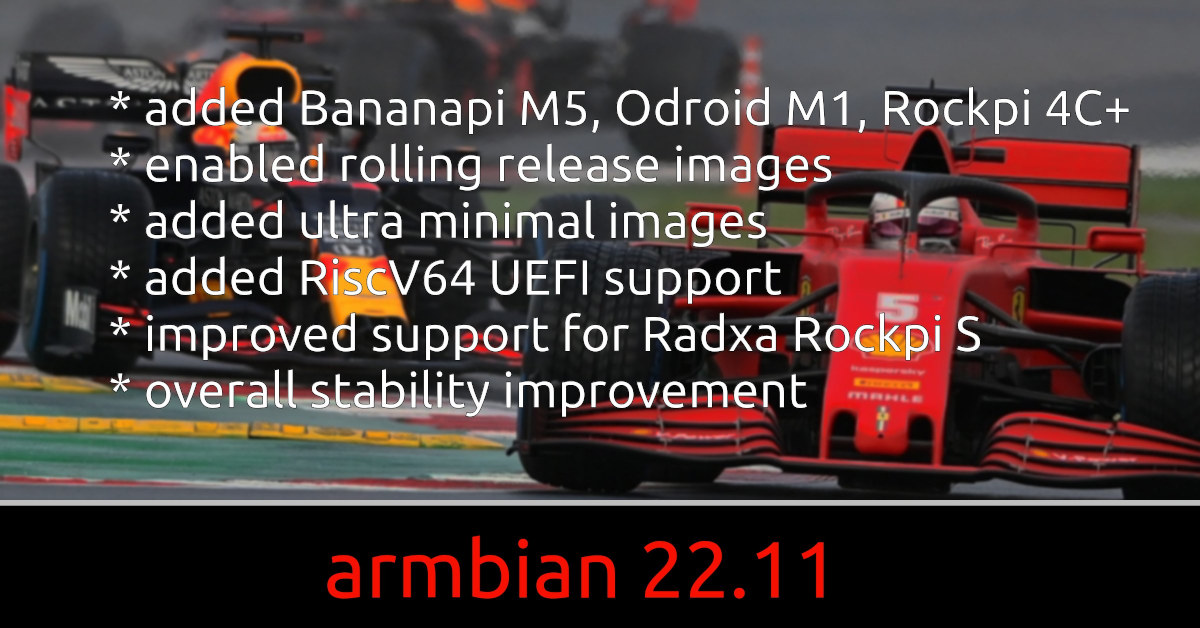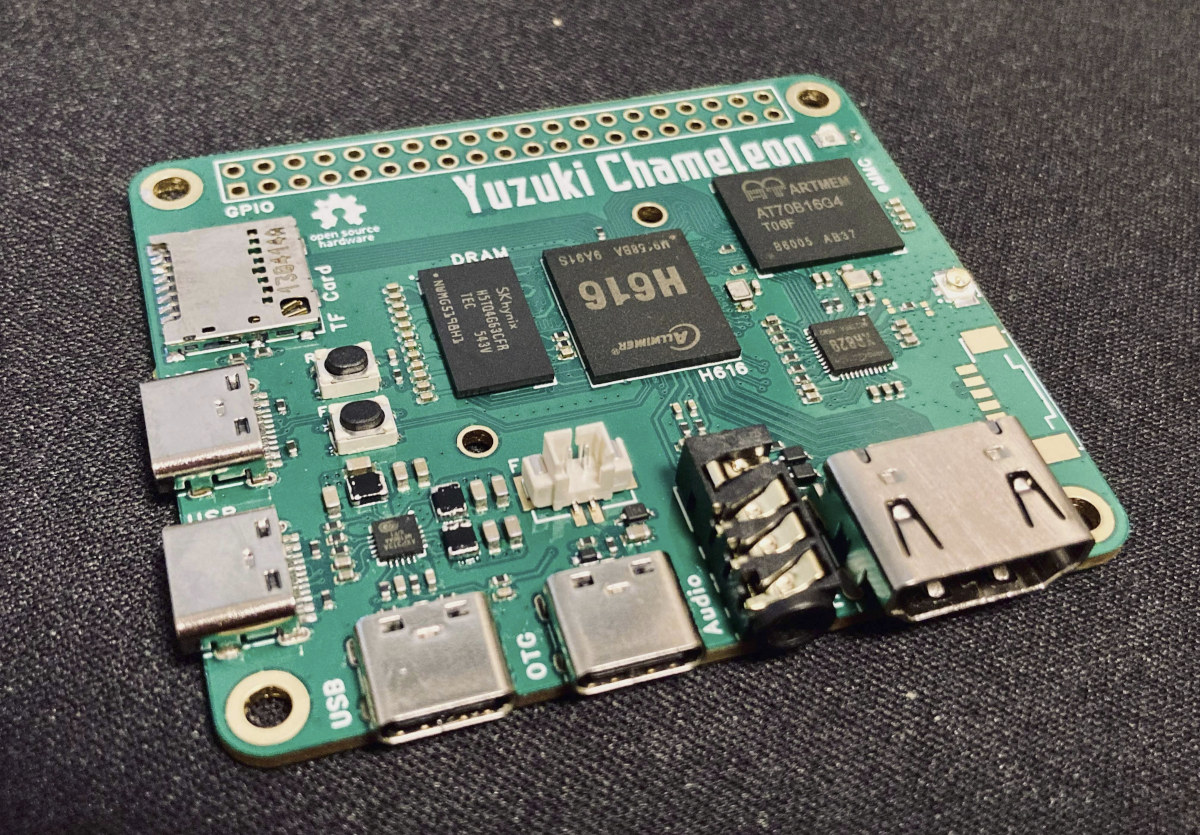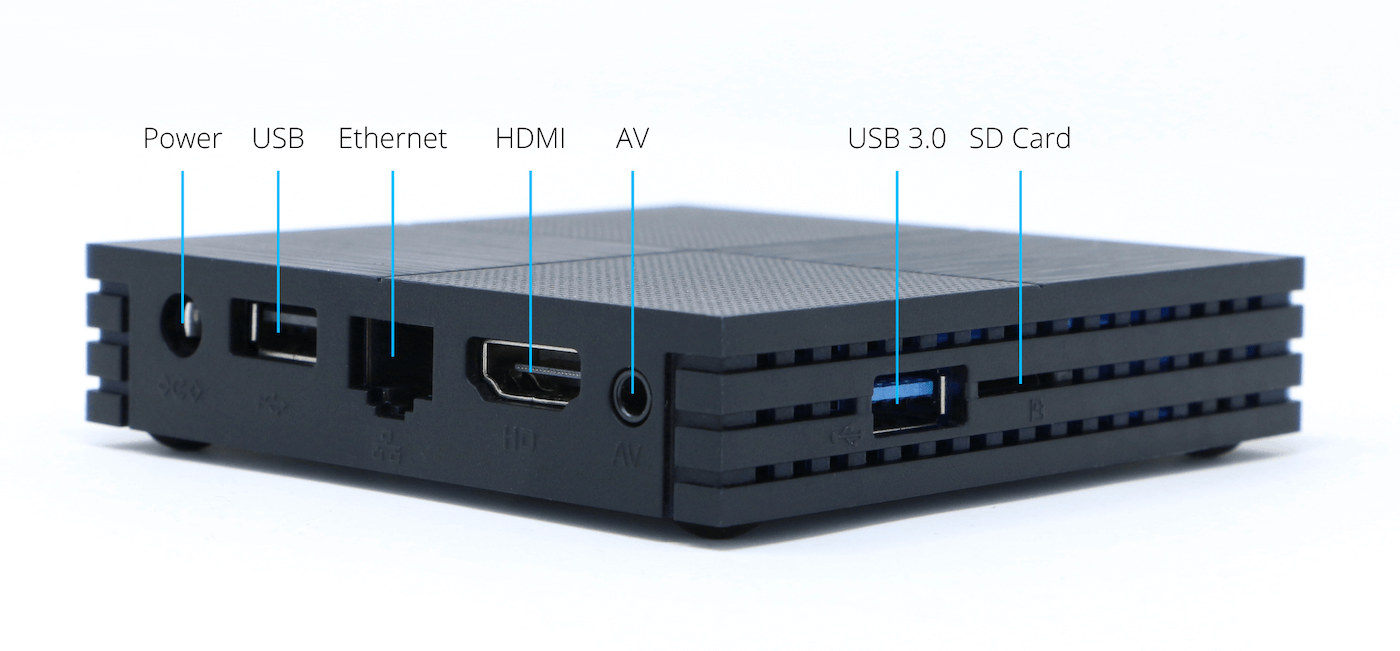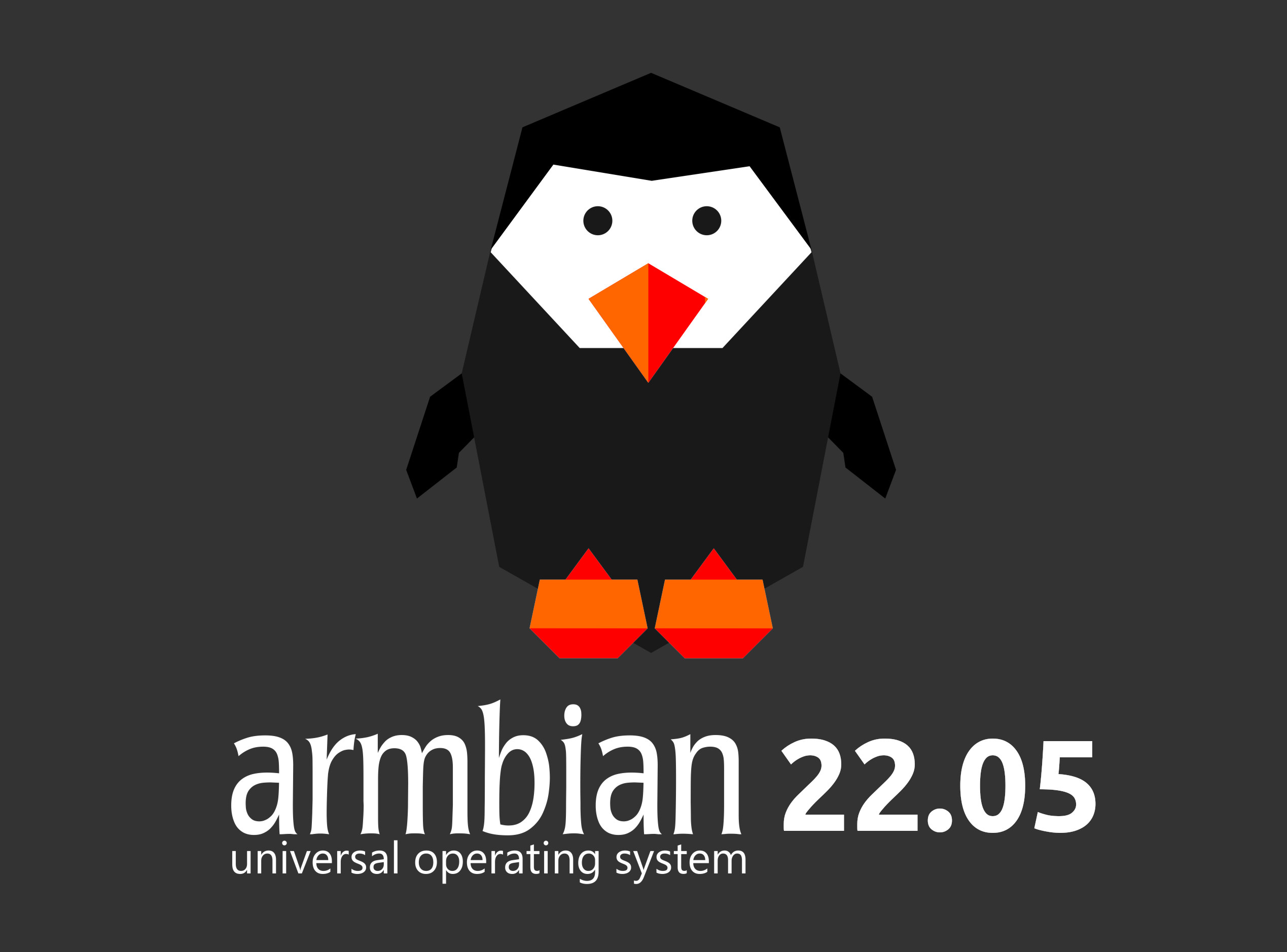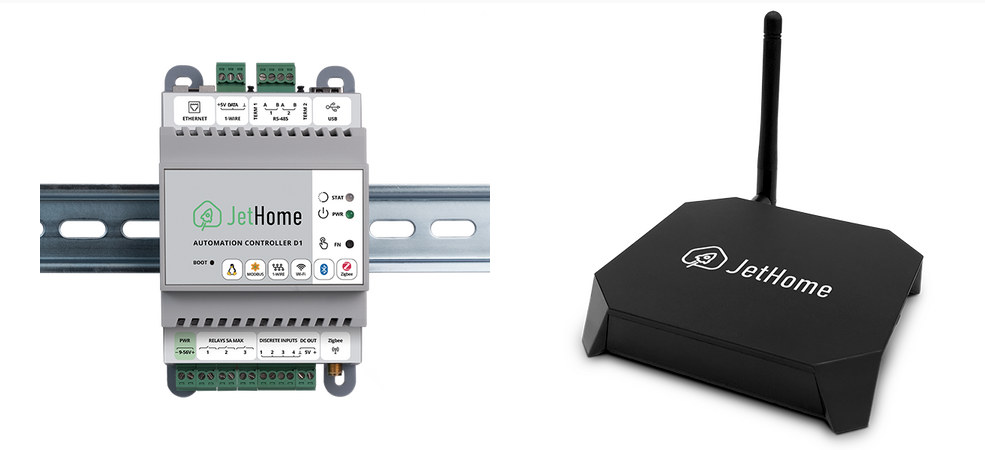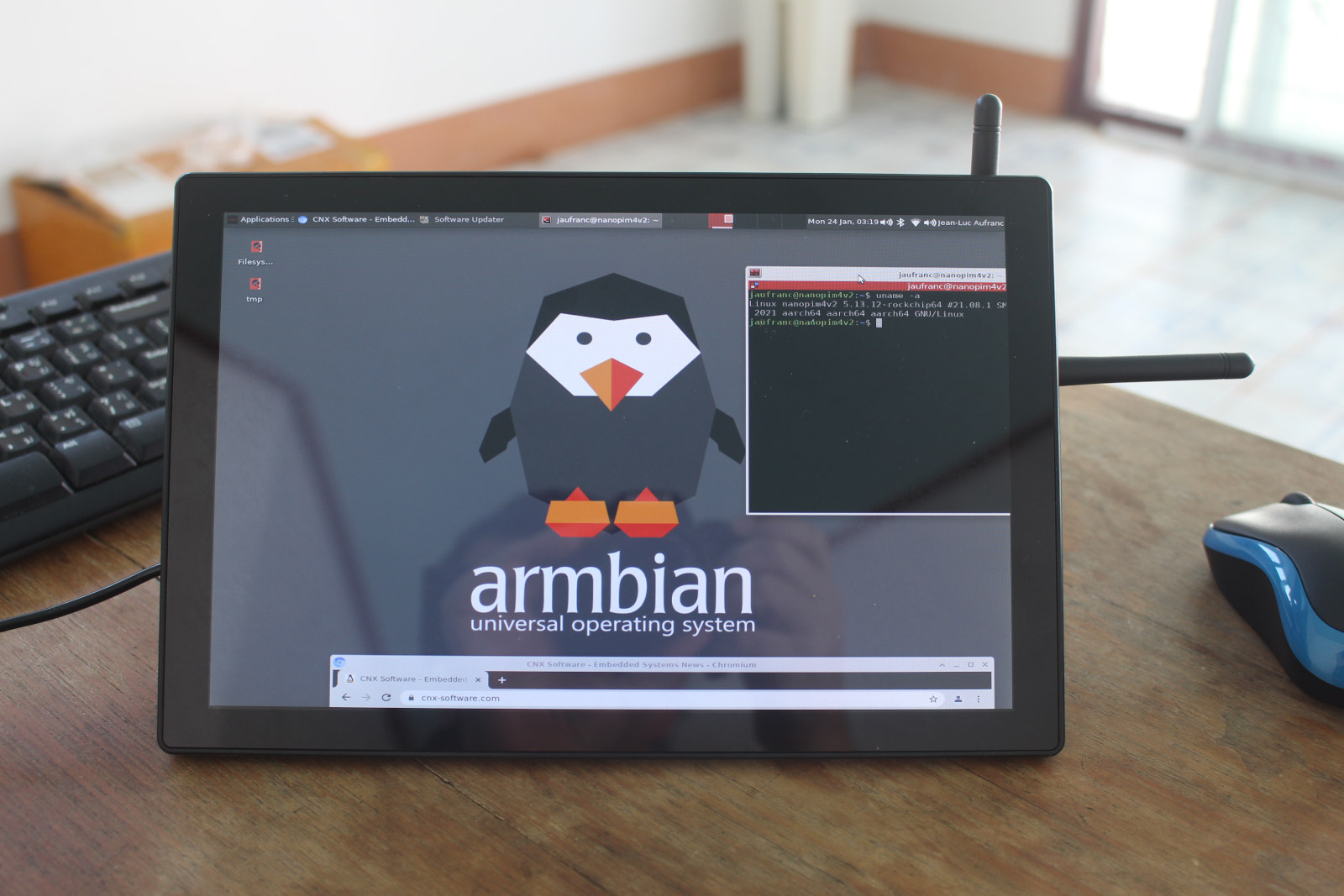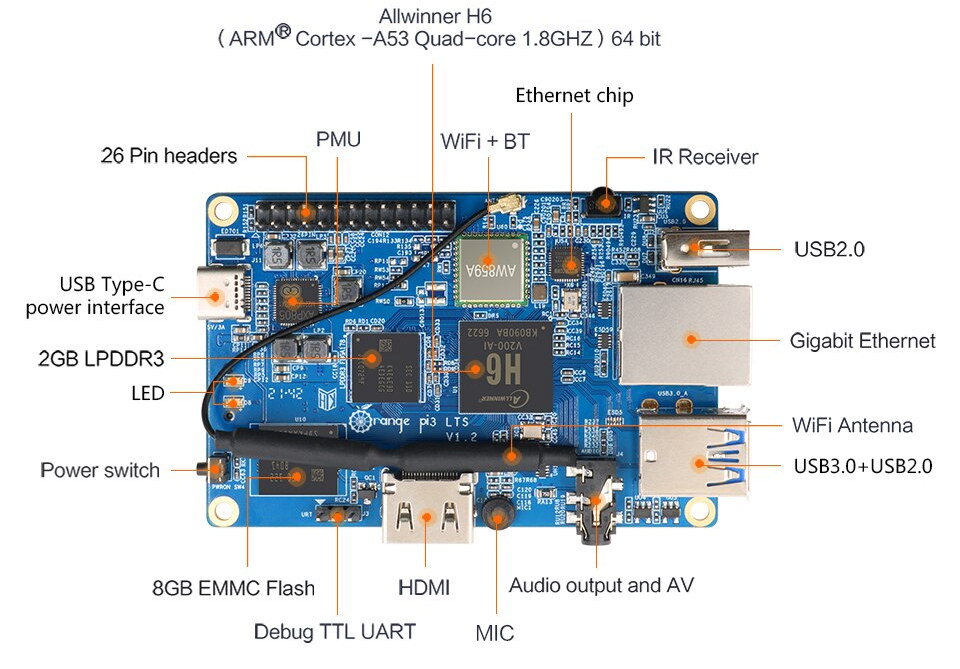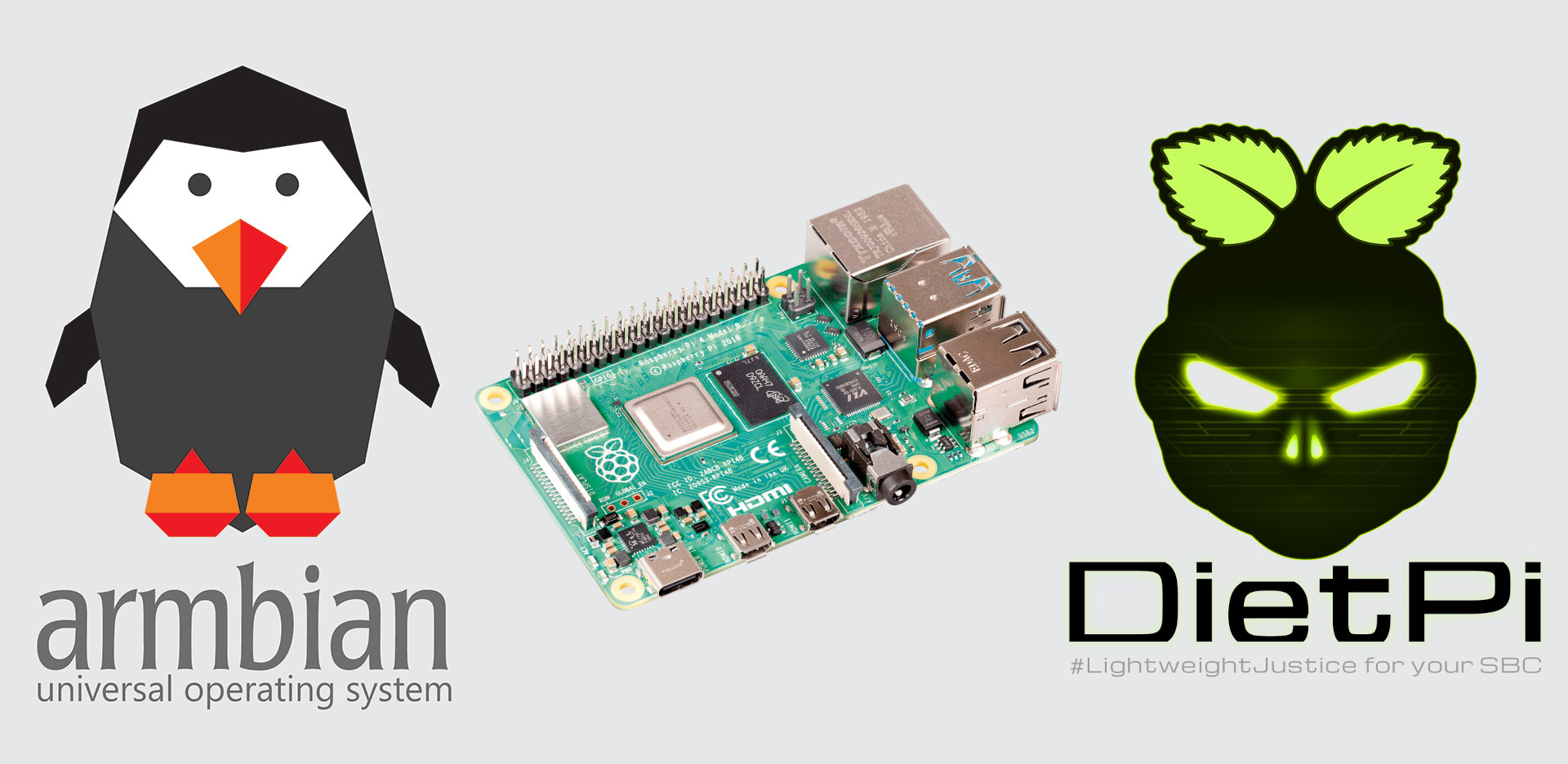Armbian 22.11 has just been released with three new SBCs, support for 64-bit RISC-V UEFI, a new ultra-minimal image optimized for software development, and various improvements. Armbian was born as a framework to build better OS images, usually Debian or Ubuntu, for Arm-based single board computers from Orange Pi, Hardkernel (ODROID), FriendlyElec, Banana Pi, and others, but now with the release of Armbian 22.11, support for the RISC-V architecture has started since the system can now generate 64-bit RISC-V UEFI images. Some other highlights of Armbian 22.11 include: Added support for Banana Pi BPI-M5 (Amlogic S905X3), ODROID-M1 (Rockchip RK3568), and Rock Pi 4C Plus (Rockchip RK3399-T) Enabled community images with a weekly release cycle Added ultra minimal images optimized for software deployment Improved support for the Rock Pi S (Rockchip RK3308) Kernel upgrade is frozen by default to improve stability I could not find details about the new “Minimal” images, […]
Yuzuki Chameleon – A Raspberry Pi Model A shaped SBC with Allwinner H616 CPU
Yuzuki Chameleon is an open-source hardware single board computer powered by an Allwinner H616 quad-core Cortex-A53 processor that somewhat follows the shape of Raspberry Pi 3 Model A+ SBC with a different port layout that should still keep mechanical and electrical compatibility with some Raspberry Pi HATs. The board supports up to 2GB RAM, up to 128GB eMMC flash, features a MicroSD card slot, one 4K-capable HDMI 2.0 port, an audio jack, four USB Type-C ports to keep the design as slim as possible, as well as a wireless module for WiFi and Bluetooth and a connector to optionally add Fast Ethernet through an external module. Yuzuki Chameleon specifications: SoC – Allwinner H616 quad-core Cortex-A53 processor @ with Arm Mali G31 GPU, 6Kp30/4Kp60 video decoder System Memory – Up to 2GB RAM Storage – Up to 128GB eMMC flash storage, MicroSD card socket Video Output – HDMI 2.0 up to […]
$29 Inovato Quadra Arm mini PC runs Armbian on Allwinner H6 processor
Inovato Quadra is an Arm Linux mini PC based on Allwinner H6 quad-core Cortex-A53 processor with 2GB RAM, 16GB flash, and running Armbian-built Debian 11 Bullseye 64-bit. If the device looks like a repurposed Android TV box, it is because it is based on the T95 Mini model with one HDMI 2.0 port, USB 3.0 and 2.0 ports, a microSD card slot, a Fast Ethernet port and WiFi 4 wireless connectivity. Inovato Quadra specifications: SoC – Allwinner H6 quad-core Arm Cortex-A53 processor @ up to 1.7 GHz with Arm Mali-720 MP2 GPU System Memory – 2GB RAM Storage – 16GB eMMC flash, MicroSD card slot Video & Audio Output HDMI 2.0 port up to 4Kp60 3.5mm AV port with video composite and analog audio Networking 10/100M Ethernet port Wireless Quadra – 2.4 GHz 802.11n Wi-Fi 4, no Bluetooth (can be added with a USB dongle) Quadra Plus – Dual-band 802.11ac […]
Armbian 22.05 release adds support for Orange Pi R1 Plus LTS, Radxa Zero & Rock 3A, DevTerm A06
The latest release of Armbian, version 22.05, is now out with hundreds of Linux kernel and user space-related bug fixes, a focus on stabilizing existing platforms, while still adding four new boards with Orange Pi R1 Plus LTS (RK3328), Radxa Zero (Amlogic S905Y2), Radxa Rock 3A (RK3568), and DevTerm A06 (RK3399). The community also added two new maintainers for ESPRESSObin and Radxa Rock Pi 4 (Model A) SBCs which should mean the images for those boards will be tested more regularly and potential issues fixed more quickly. You may want to read the more detailed changelog to see if any changes may impact the board(s) you are using. The new Armbian 22.05 release succeeds Armbian 22.02 outed on February 28, 2022. If you’d like to upgrade simply run those two commands on your existing installation:
|
1 2 |
sudo apt update sudo apt upgrade |
For new installation, browse the list of supported boards, select the Debian/Ubuntu image you’d […]
JetHome JetHub D1 is a Linux automation controller based on Amlogic A113X SoC
I discovered JetHome Jethub D1 and Jethub H1 Linux automation controller based on respectively Amlogic A113X and S905X SoCs in Linux 5.16 changelog, as both platforms got upstreamed to mainline Linux. I had never heard of JetHome, a Russian company based in St. Petersburg, nor their products before. Both Jethub D1 & H1 will run either an Armbian-built Ubuntu operating system or Home Assistant Operating System (formerly HassOS), and support Home Assistant (Z2M), Home Assistant (ZHA), and ZIgbee2MQTT. Jethub H1 looks like a TV box with a Zigbee module, while Jethub D1 is a DIN Rail automation controller with plenty of I/Os. Let’s focus on the latter. JetHub D1 specifications: SoC – Amlogic A113x quad-core Cortex A53 processor @ up to 1.5 GHz System Memory / Storage configurations 512MB RAM and 8 GB flash 1GB RAM and 16 GB eMMC flash Connectivity 10/100M Ethernet RJ45 port Dual-band WiFi 5 and […]
Building a NanoPi M4V2 based All-in-One Linux PC running Armbian (Ubuntu/Debian)
At the end of my review of “RPI All-in-One” PC with Raspberry Pi 4, I noted the system also appeared to be compatible with NanoPi M4V2 single board computer. I’ve now tried it out, and assembling the board inside the 10.1-inch display is even easier than I initially thought. That means I now have a NanoPi M4V2 All-in-One PC running Ubuntu Hirsute or Debian Buster with XFCE desktop environment from Armbian, and most features work including the display and wireless connectivity, but I still have an issue with the touchscreen function. Here are the steps I followed initially: Download Armbian Buster XFCE image from Armbian and flash it to a microSD card with tools like USBimager. Insert the microSD card in the board Install the USB Type-C and HDMI-A adapters in the display. Insert the USB Type-C and HDMI port of the NanoPi M4V2 SBC into the adapters Install the […]
$35 Orange Pi 3 LTS SBC comes with 2GB RAM, 8GB flash, AW859A WiFi 5 and Bluetooth 5.0 module
Orange Pi 3 LTS is a cost-down, more compact version of Orange Pi 3 SBC launched in 2019 with Allwinner H6 quad-core Cortex-A53 processor, Gigabit Ethernet, four USB 3.0 ports, and mPCIe socket with a PCIe x1 Gen2 lane. AFAICR, the latter never really worked well due to a botched implementation in the SoC. The new slimmed-down Orange Pi 3 LTS is sized like a business card, loses the mostly useless mPCIe socket from the original board, comes with 2GB LPDDR3 RAM (no more 1GB RAM option), a lower number of USB ports, USB Type-C power input, and an Allwinner AW859A WiFi and Bluetooth module replaces the Ampak AP6256 module from the original board. Orange Pi 3 LTS specifications: SoC – Allwinner H6 quad-core Cortex A53 processor clocked at up to 1.8 GHz with Arm Mali-T720MP2 GPU supporting OpenGL ES 3.1/3.0/2.0/1.1, DirectX 11 System Memory – 2GB LPDDR3 (before 1GB […]
Raspberry Pi 4 gets Armbian test images, DietPi 7.9 released
Ubuntu and Debian images built by Armbian got popular because of the sad state of affairs of most single board computers. But since Raspberry Pi boards are rather well-supported by the Raspberry Pi Foundation and community, plus part of it is closed-source, there’s been little motivation by the Armbian community to work on it, and that means there’s no official support for Raspberry Pi. But some Armbian test images have just been released for Raspberry Pi 4, specifically Ubuntu 22.04 “Jammy Jellyfish” images with a CLI (headless) version, and two desktop variants with Cinnamon and XFCE desktop environments which you can download on their server(s). Separately, DietPi 7.9 lightweight Linux distribution based on Debian has also been released with various improvements. The good news about Armbian images for Raspberry Pi is that they exist, but the less good news is that those are still “test images”, and the popular board […]


